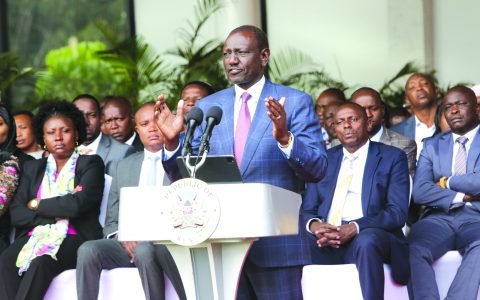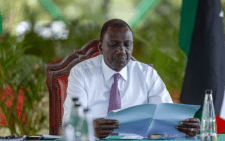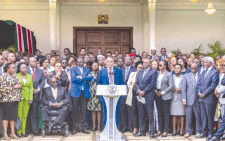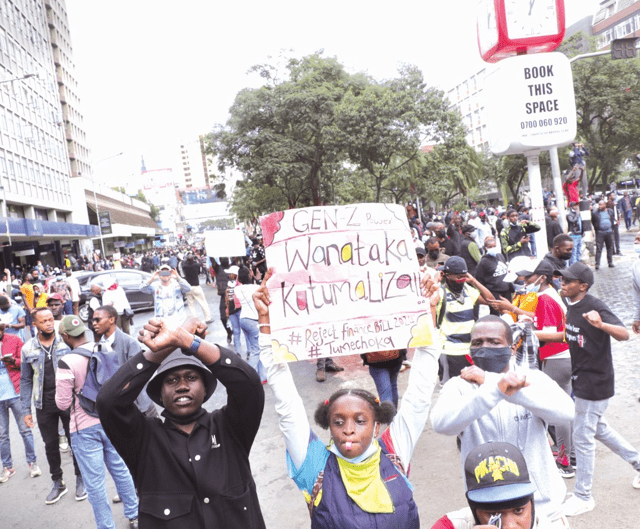Church needs to rethink relations with political power

The Church as an institution had been mostly mum as young Kenyans protested on the streets against the government’s extortionate tax proposals.
But when groups of clerics finally emerged on Tuesday evening and Wednesday morning to call for calm, things had already boiled over and whatever they had to say couldn’t undo the deaths the tools of oppression had wrought.
The poorly written statement issued on Tuesday by the Kenya Conference of Catholic Bishops – like remarks made previously by other clerics - sounded largely detached in tone, intended to soothe but not to offend the people in power.
Previously, on June 21, the top metropolitan Nairobi Catholic cleric issued a similarly inconsequential public statement. Archbishop Philip A. Anyolo did not come out to say explicitly that he was on the side of the weak and overtaxed but to explain (feebly) why a group of protesters fleeing from anti-riot police were denied entry into the Holy Family Minor Basilica.
The Basilica, which houses a school, had been mentioned on social media regarding the protesters who sought shelter there. Without specifying exactly what had happened, Anyolo said church officials wanted to protect students and diocese staff from danger.
To placate critics and so as not to be seen to be uncaring, Anyolo said that “we … deeply emphatise with those affected by the situation” and that the Church stands “in solidarity with all those who work towards a better future for all Kenyans”.
With timid actions like those at the Basilica and the contrived silence of much of the Church, religious leaders have clearly taken sides in the rupture over the finance bill (now withdrawn), and their posture was designed not to rattle the ruling class.
But this shouldn’t be some thunderbolt revelation – the poisonous alliance between religious leaders and politicians is an old story in Kenya. This dangerous coalition is on brazen display every weekend. Politicians go to church ostensibly to worship but with the nod of friendly clerics turn pulpits into political soapboxes. Politicians court clerics for the coveted votes their congregants represent. They do this mainly by corrupting churches with large offers of financial support, often as donations for building projects.
Religious leaders, in turn, are invited to take part in national events, such as the National Prayer Breakfast, which is a major annual political gathering sponsored by the Speakers of the National Assembly and the Senate but disguised as an ‘ecumenical’ celebration.
Naturally, the public profiles of these clerics grow and they become cultural grandees of sorts – ‘wise’ people that politicians consult on certain policy issues, especially those related to moral or ethical concerns or on social reforms that clash with religious teachings.
Some clerics are rewarded with appointments to head public institutions or to serve on the boards of taxpayer-funded bodies, thus giving them some form of political influence, which they can deploy in wicked ways.
This mating of religion and politics worries some of us because it could compel religious leaders to serve the interests of politicians and the ruling class at the expense of the aspirations of citizens who want a more equal society.
Today’s religious leaders have lost their way. They need to demonstrate forcefully that they are on the side of the weak. Their more courageous predecessors embraced the people’s agenda against a rigid ruling class in the push for multiparty politics in the 1980s and 1990s.
The Church needs to honour the legacy of these great clerics and reorient its relationship with political power. Religious leaders should start by fiercely championing socio-economic justice and the rights of marginalised groups without being judgmental.
The writer is a Sub-Editor with People Daily.



